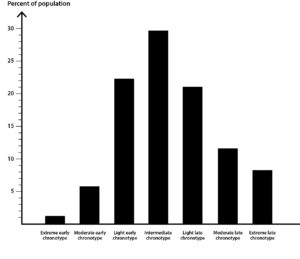Circadian Health & Performance
Designing work and life in sync with your natural rhythm.
Some of us wake up refreshed at 6 a.m. Others do their best thinking in the late afternoon or evening. These differences aren’t preferences — they’re genetic variations in circadian rhythm, also known as chronotypes.
Applied chronobiology is the science of aligning how we live and work with our internal clocks — to support better health, stronger performance, and more inclusive work cultures.
While doing my PhD in work-life balance in 2003, I came across research on the clock gene PER3 — and it gave me language for what I had always felt in my body:
I’m a late chronotype — biologically wired to be more alert later in the day.
Why this matters

Most workplaces are still designed around early birds.
But only about 30% of people are true morning types. The rest fall somewhere in between — or toward the later end of the spectrum.
Yet many are forced to wake up early to fit outdated norms.
This misalignment comes at a cost:
– Reduced cognitive performance
– Chronic sleep debt
– Elevated health risks
When we ignore chronotypes, we waste human potential.
When we honor them, we unlock productivity, flow, and well-being.
Want to explore more?
I’ve created appliedchronobiology.com as a resource hub for anyone interested in rhythm-aware design. It includes tools, research, and practical examples of how chronotype-aware workplaces can benefit individuals, teams, and organizations.

